13 Home Remedies & Diet Tips
If you’re dealing with pesky pimples and want a quick fix, you might find a combination of home remedies and dietary adjustments surprisingly effective. Simple ingredients like apple cider vinegar and honey can combat bacteria, while a diet rich in fruits and omega-3s supports overall skin health. It’s not just about what you apply topically; what you eat and how you manage stress play essential roles too. Curious about specific remedies and dietary tips that can make a difference? Let’s investigate some practical strategies to help you achieve clearer skin faster.
Understanding Acne
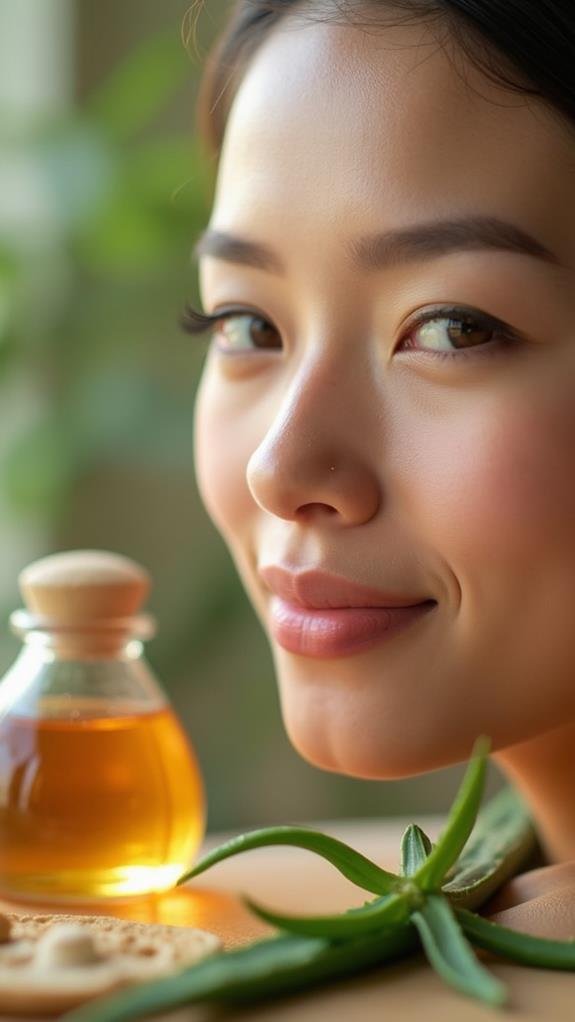
Acne affects millions of people worldwide, making it one of the most common skin conditions. It happens when your pores get clogged due to excess oil produced by sebaceous glands and dead skin cells. When this occurs, bacteria, especially Propionibacterium acnes, can thrive in those clogged pores, leading to inflammation. This inflammation is what causes those red, swollen bumps we associate with acne.
Hormonal changes, particularly during puberty, can trigger an increase in oil production, making it easier for acne to form. It’s not just teenagers who face this issue; people of all ages can deal with acne.
Stress and certain dietary choices, like high sugar and dairy intake, can worsen your symptoms, too.
Understanding the different types of acne—such as blackheads, whiteheads, and cystic acne—can help you determine the best way to treat it. Each type has its own characteristics, which means you’ll need to choose your treatment wisely.
Causes of Acne
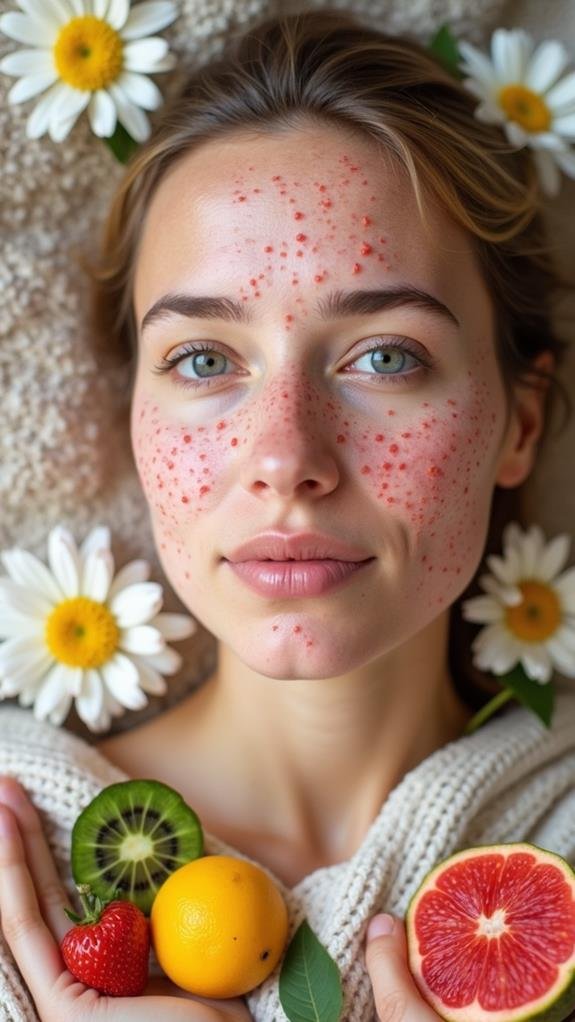
Understanding the causes of acne can empower you to take control of your skin health. Acne primarily occurs when your pores get clogged with excess oil, known as sebum, and dead skin cells. This blockage can lead to inflammation and encourage bacterial growth, making your skin even more prone to breakouts.
Hormonal fluctuations, especially during puberty, menstruation, and pregnancy, can greatly increase sebum production, contributing to acne formation. If you’ve ever noticed more breakouts during these times, now you know why!
Certain medications, like lithium and steroids, may also trigger acne in those who are susceptible. Additionally, your genetic background plays a major role in how likely you’re to develop acne; a family history can increase your risk.
Environmental factors shouldn’t be overlooked either. Pollution and high humidity can irritate your skin and boost oil production, worsening existing acne.
Home Remedies Overview
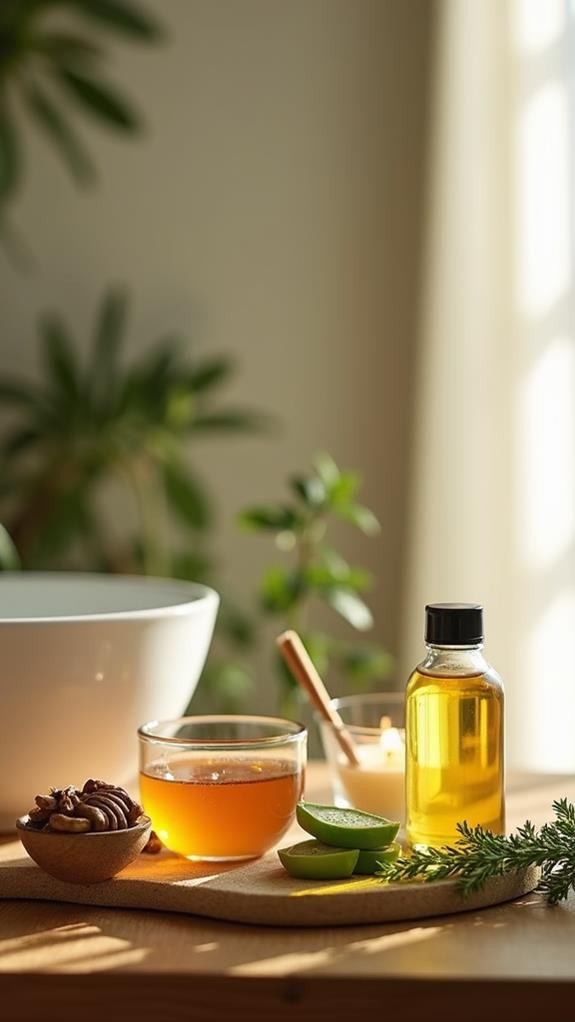
Regarding tackling pimples, home remedies can offer you a range of effective and natural options. One popular choice is tea tree oil, which has antimicrobial properties that can help reduce acne lesions when applied directly to the affected areas.
Another option is apple cider vinegar, known for its ability to balance skin pH and combat bacteria, but remember to dilute it with water before use to prevent irritation.
You might also want to try a honey and cinnamon mask. These ingredients work together to fight bacteria and can improve healing. Just apply the mixture for 10-15 minutes to see results.
Aloe vera gel is another fantastic remedy; it’s soothing and hydrating, and it contains salicylic acid, which helps unclog pores and enhance skin texture when used regularly.
While many home remedies show promise, their effectiveness can vary from person to person. It’s always a good idea to conduct a patch test before applying any new remedy to avoid unwanted skin reactions.
With these home remedies in your toolkit, you’re well on your way to reducing acne naturally!
Apple Cider Vinegar
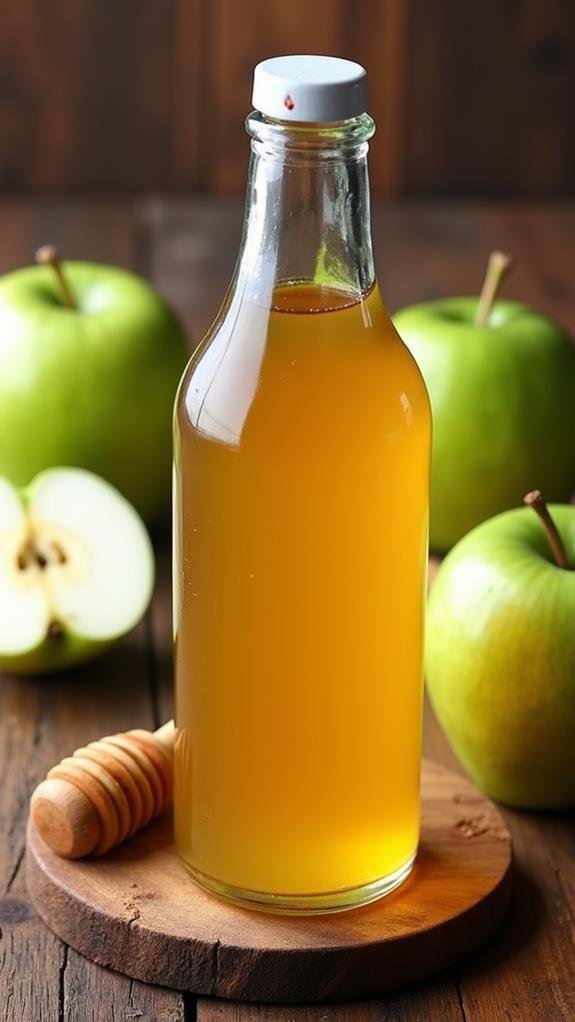
If you’re looking for a natural way to tackle pimples, apple cider vinegar (ACV) might be just what you need. This powerful ingredient contains organic acids, like acetic and citric acid, which can help kill acne-causing bacteria, such as P. acnes.
By regularly applying diluted ACV, you may also improve the appearance of acne scars and restore your skin’s natural pH balance, aiding in acne management.
However, it’s important to dilute ACV with water before applying it to your skin. Its high acidity can cause skin irritation or even burns, especially on sensitive skin.
To guarantee your skin reacts well, always do a patch test on a small area first. This way, you can identify any potential allergic reactions or sensitivities before using it more broadly.
While many people swear by ACV for treating acne, be mindful that scientific research on its effectiveness is limited.
So, approach with caution and pay attention to how your skin responds. If you notice any irritation or discomfort, consider stopping use and consulting a dermatologist.
With care, apple cider vinegar could become a helpful tool in your fight against pimples.
Honey and Cinnamon Mask
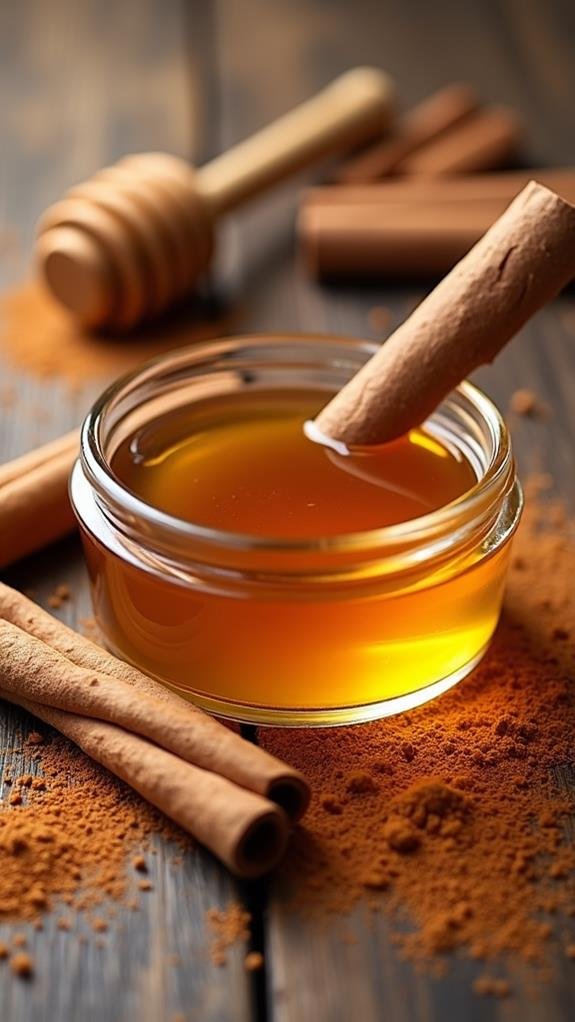
Many people find that a honey and cinnamon mask can be an effective remedy for pimples. This mask combines honey’s natural antibacterial properties with cinnamon’s ability to boost blood circulation. Together, they fight acne-causing bacteria on your skin.
To make the mask, mix two tablespoons of honey with one teaspoon of cinnamon in a bowl. Apply it to the affected areas, and let it sit for 10-15 minutes before rinsing off with warm water.
Research published in the Journal of Cosmetic Dermatology shows that honey and cinnamon can effectively inhibit the growth of Propionibacterium acnes, the bacteria behind acne breakouts. However, before applying the mask to your entire face, it’s wise to do a patch test on a small area of skin. This step helps you avoid any irritation, especially if you have sensitive skin.
For best results, use the honey and cinnamon mask 1-2 times a week. Regular application can improve your skin texture and reduce the appearance of acne over time.
Tea Tree Oil
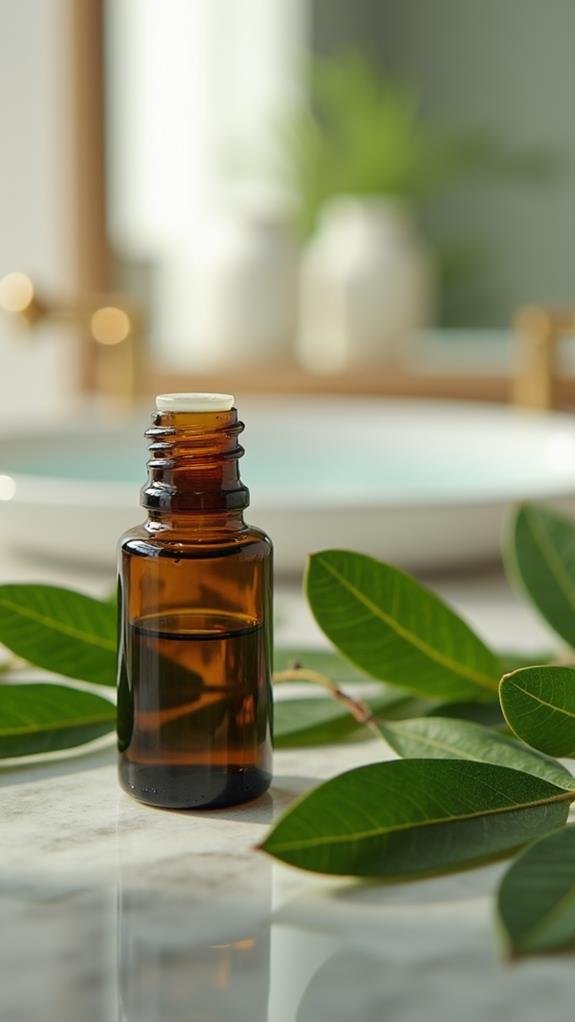
After trying the honey and cinnamon mask, you might be looking for other natural remedies to tackle pimples. One effective option is tea tree oil. This oil has natural antibacterial and anti-inflammatory properties, making it a powerful ally against acne-causing bacteria, specifically P. acnes.
A study even found that applying tea tree oil can reduce acne lesions by up to 40% after just 12 weeks of use!
To use tea tree oil safely, it’s important to dilute it with a carrier oil, like jojoba or coconut oil. This helps minimize any skin irritation that might occur.
Before applying it to larger areas, always perform a patch test on a small area of skin. This way, you can check for any allergic reactions without risking a breakout.
You can find tea tree oil in various forms, including pure oil, creams, and gels, which gives you flexibility in how you apply it.
Just remember to be patient and consistent with your routine, as results can take time. With tea tree oil in your skincare arsenal, you can help combat those pesky pimples effectively!
Green Tea
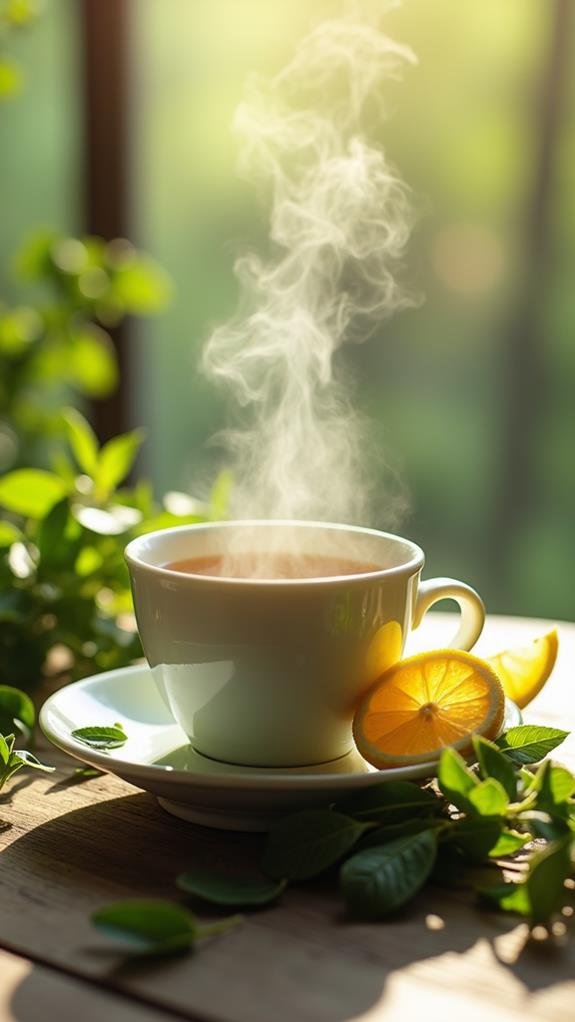
While you investigate natural remedies for acne, green tea stands out as a powerful option. This amazing drink is packed with antioxidants, especially polyphenols, which help reduce inflammation and fight the bacteria linked to acne.
Studies show that using green tea extract topically can lead to an impressive 79-89% reduction in whiteheads and blackheads after consistent use.
You can also drink green tea to help reduce sebum production, a key factor that contributes to acne. By lowering the amount of oil on your skin, you can make a significant difference in your overall complexion.
The anti-inflammatory properties of green tea can soothe irritated skin and lessen redness around pimples, making it an excellent acne treatment.
Creating a homemade green tea treatment is easy! Just brew a strong cup, let it cool, and apply it to your skin with a cotton ball. You can even use it as a facial mist for a revitalizing boost.
Many skin care products now include green tea extract, so keep an eye out for those as well. With its antibacterial qualities, green tea is a fantastic addition to your acne-fighting arsenal!
Aloe Vera
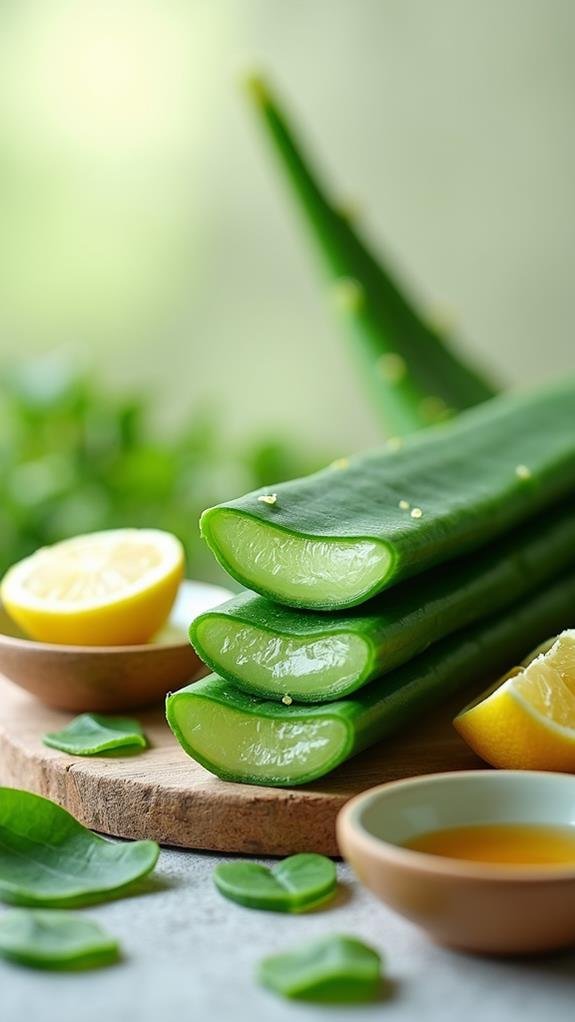
If you’re looking for a natural remedy to tackle acne, aloe vera is a fantastic choice. This plant is packed with salicylic acid, which helps unclog pores and reduces inflammation associated with acne. A 2021 study even showed that using aloe vera gel regularly can lead to fewer acne bumps and lesions on your skin.
What makes aloe vera even more special is its natural antibacterial properties. By fighting off acne-causing bacteria, it serves as an effective topical treatment. When you apply aloe vera, you’ll notice its soothing effects, which help alleviate redness and irritation in inflamed skin. This can make a big difference if you’re feeling self-conscious about breakouts.
Consistency is key! When you use aloe vera regularly, it not only helps heal active acne but also promotes the healing of acne scars, improving your overall skin texture.
You can apply fresh aloe vera gel directly from the plant or use store-bought products, just make sure they’re pure. With aloe vera in your skincare routine, you’re one step closer to clearer skin!
Zinc Supplements
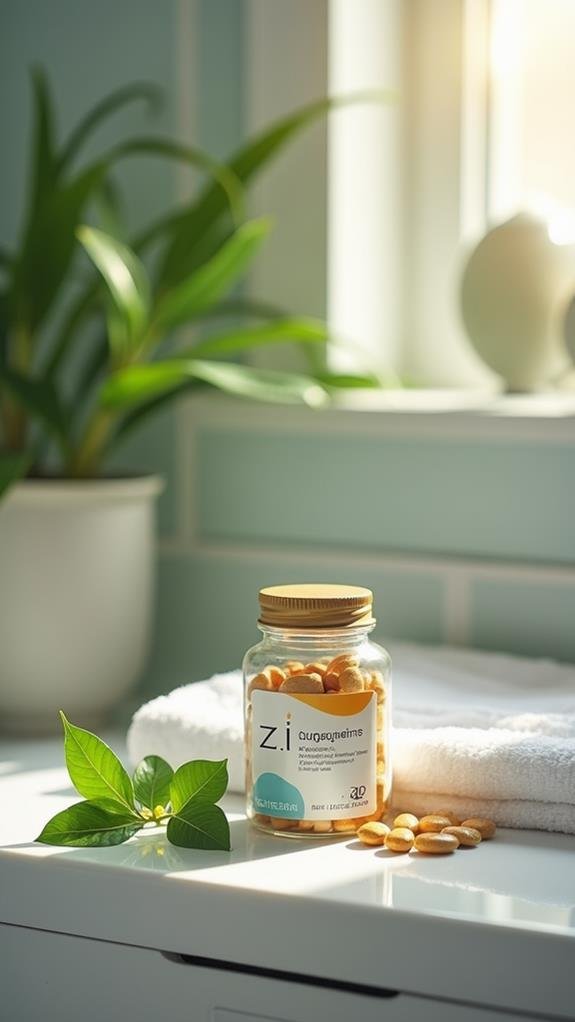
Zinc supplements can be a game changer in your fight against acne. They’ve been shown to reduce inflammation and promote healing in acne-prone skin, making them a valuable part of your acne treatment plan.
If you’ve ever wondered why acne seems worse at times, research indicates that zinc deficiency may be linked to increased severity, highlighting the significance of adequate zinc levels for skin health.
Taking zinc can help you see overall skin improvement. You might notice fewer inflamed pimples and a clearer complexion after consistent use over several weeks.
Zinc is available in various forms, including tablets, capsules, and lozenges, so you can choose what fits best into your routine.
However, it’s essential to keep in mind that the recommended upper limit for zinc intake is 40 mg per day for adults, so you should discuss supplementation with a healthcare provider to find the right dosage for you.
By incorporating zinc supplements into your daily regimen, you’re giving your skin a fighting chance against acne, paving the way for healthier, clearer skin.
Don’t underestimate the power of zinc in your journey to achieving better skin!
Dietary Changes
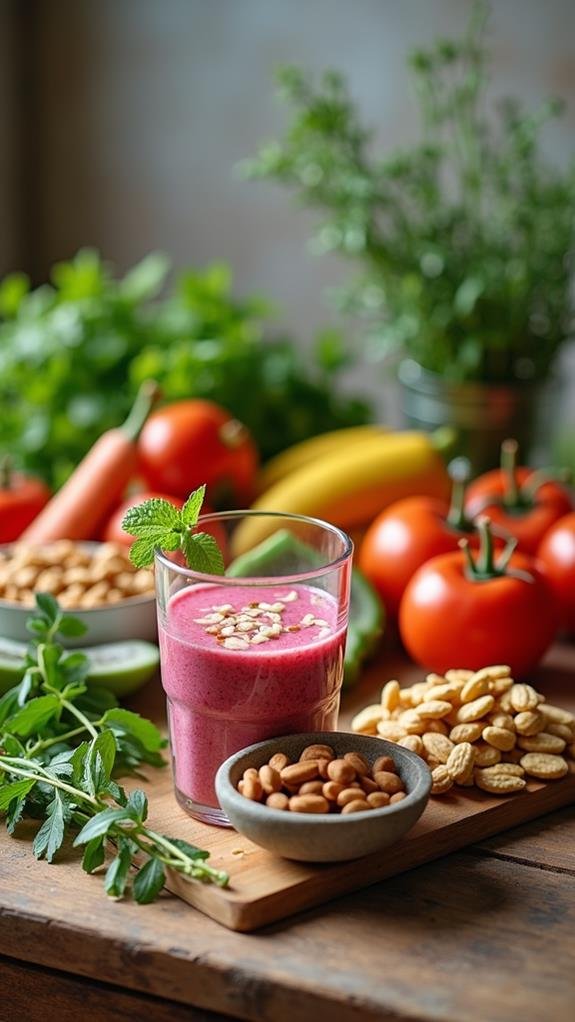
In your quest for clearer skin, dietary changes can play a significant role alongside zinc supplements. One effective way to tackle pimples is by reducing your sugar intake. High sugar levels can spike insulin, which often leads to increased oil production and inflammation, making acne worse.
Instead, focus on a diet rich in fruits and vegetables. These foods are packed with essential vitamins and antioxidants that support skin health and help reduce acne by fighting oxidative stress.
Incorporating omega-3 fatty acids, found in fish oil and flaxseeds, can also make a difference. These healthy fats are known to reduce inflammation, which is key to preventing breakouts.
Staying hydrated is just as vital; drinking enough water helps flush out toxins that can contribute to acne.
Additionally, some studies suggest that avoiding dairy products may help certain individuals reduce acne severity. Dairy can increase oil production and inflammation for some people.
Stress Management

Managing stress effectively can be a game-changer for your skin. High stress levels can trigger hormonal imbalances that stimulate your oil glands, leading to more acne breakouts. To reduce stress, consider incorporating techniques like meditation and yoga into your daily routine. These practices not only help calm your mind but may also improve your skin health.
Regular exercise is another fantastic way to manage stress. It promotes overall well-being and lowers stress hormones, which can potentially reduce the severity of acne. Aim for at least 30 minutes of physical activity most days, whether it’s jogging, dancing, or simply going for a brisk walk.
Don’t underestimate the importance of sleep, either. Adequate sleep is vital for skin regeneration and healing. Lack of sleep can increase stress and result in acne flare-ups, so try to get those recommended 7-9 hours each night.
Moisturizing and Skin Care
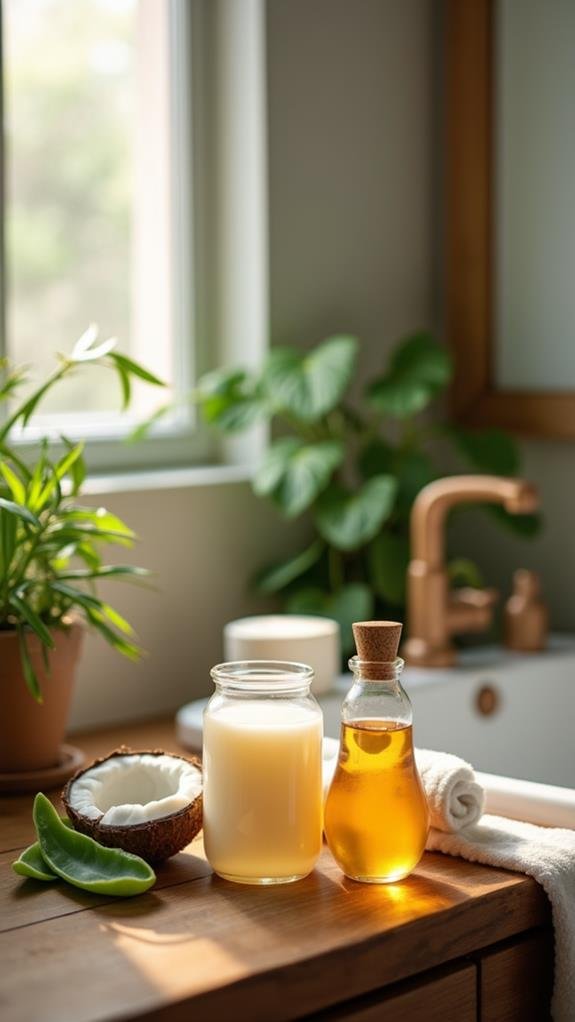
How can you effectively care for your skin while keeping it hydrated? Start by incorporating a good moisturizing routine using non-comedogenic products. These are specially designed not to clog your pores, helping to prevent excess oil production and pimples.
Consider adding aloe vera gel to your skincare routine, as it offers antibacterial and anti-inflammatory benefits, which can help heal existing pimples and stop new ones from forming.
Don’t forget about exfoliation, which you should do 1-2 times a week. This helps remove dead skin cells that can build up and block your pores. Just be careful not to over-exfoliate, as that can irritate your skin.
When choosing products, look for ones that contain salicylic acid or benzoyl peroxide. These ingredients are effective at unclogging pores and reducing inflammation, making them great additions to your moisturizing routine.
Lifestyle Changes
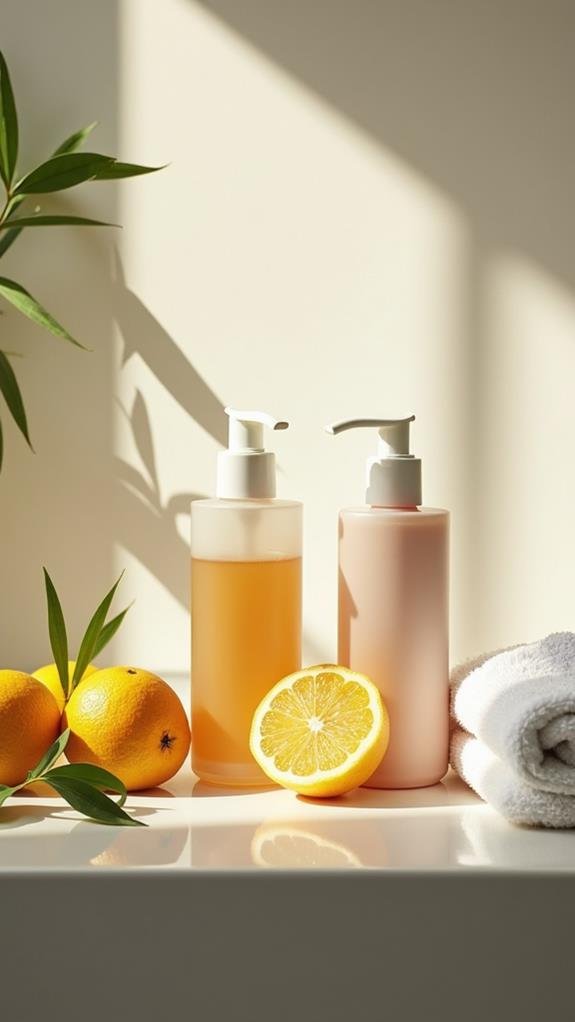
A good skincare routine is just one part of the equation regarding combating pimples. To really see improvements, you need to make some lifestyle changes. Start by focusing on a balanced diet that’s rich in omega-3 fatty acids, antioxidants, and vitamins. Foods like fish, nuts, and colorful fruits can work wonders for your skin.
Next, keep your body moving! Regular exercise helps improve blood circulation and reduces stress levels, both of which can help your skin look healthier.
Speaking of stress, practicing stress management techniques such as yoga, meditation, or simply ensuring you get enough sleep can stabilize your hormones, which may prevent breakouts.
Don’t forget about hydration! Drinking enough water each day supports your skin function and can prevent excess oil production that leads to pimples.
Combine these changes with your consistent skincare routine that includes cleansing, exfoliating, and moisturizing, and you’ll be on your way to clearer skin.
Conclusion
To sum up, getting rid of pimples fast involves a mix of effective home remedies and healthy lifestyle choices. From using tea tree oil to making a honey and cinnamon mask, these natural treatments can help reduce inflammation and bacteria on your skin. Don’t forget to eat a balanced diet, manage stress, and stay hydrated to support your skin’s health. With some patience and consistency, you can achieve clearer skin and boost your confidence!
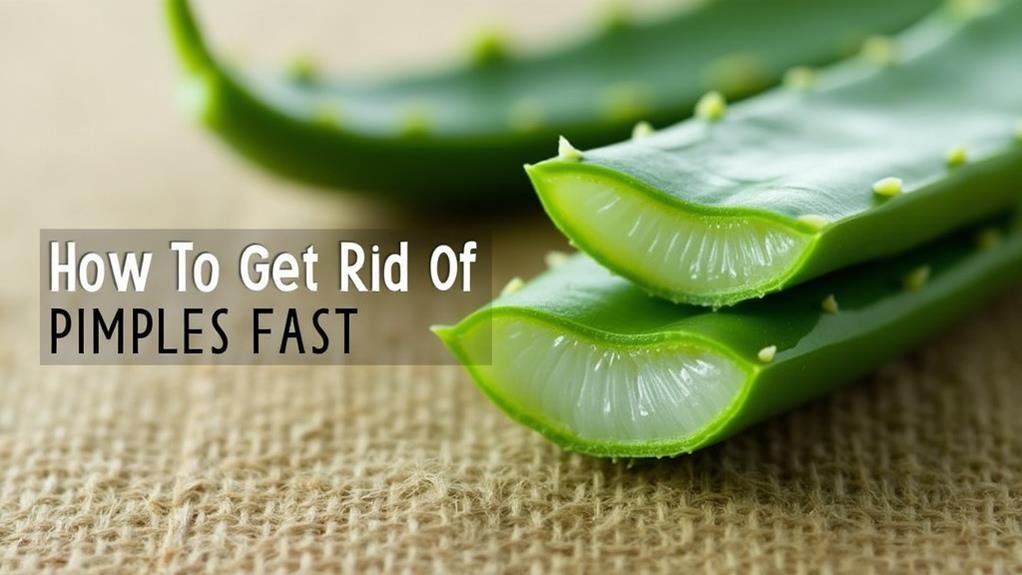






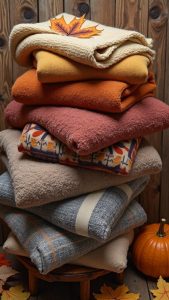


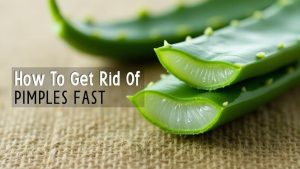


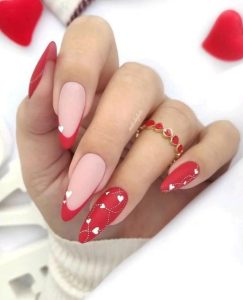
Post Comment